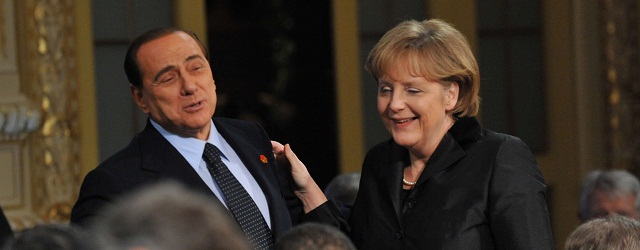Politics in Europe looks messier by the hour, and the stock markets have already been shaken by the implied increase in risk, volatility and sheer uncertainty looming over Italy and Spain, particularly.
In Italy, while general elections approach, former prime minister Silvio Berlusconi has been making almost unbelievable advances. Opinion polls repeatedly show him getting stronger support to investors’ dismay and most financial agents’ horror. It is no secret that the markets would consider a Berlusconi comeback as a disaster. During the last months of 2011, Berlusconi’s behaviour was singled out by analysts as the main cause of the Italian premium risk jumping up. Market credit to the Italian government reached maximum levels after his arguments with the German Chancellor Angela Merkel. Only Draghi could readdress the situation and avoid a collapse using the long-term refinancing tools of the European Central Bank.
Back then, Spain was not in that sort of front-line. True, its banks were the weakest link of the country’s economic portrait and it all became visible when the government had to intervene Bankia. Investors’ doubts were at all times high and it was obvious that the sector had to be reformed, restructured and finally sanitised.
The Spanish government’s communication skills have not helped, either, to reassure investors. Details have often been confusing or incomplete. Even so, president Mariano Rajoy resisted sudden decisions or rushing gestures, investor confidence seemed to like his calm pulse, and his discourse of more stimulus–shared by France’s Hollande, too–was making some way. Then, the worst happened.
The Bárcenas affair has destabilised the Spanish government at a moment in which it is negotiating with Brussels, and also at a moment in which economic data appears to confirm that austerities policies have been excessive. The premium risk on Spanish bonds has climbed as a first warning by investors, who would like a prompt response to the controversy.
Again, the Rajoy cabinet has not lost its self-confidence and the budget of the European Union will continue providing some investment.
But for all the noise these scandals bring about, the pressure on Merkel should not abate. The eurozone needs that Germany relaxes its stand on public investment cuts, and efficient measures to deal with sovereign debt should be agreed by all country members.






Be the first to comment on "Berlusconi, Bárcenas and Angela Merkel"